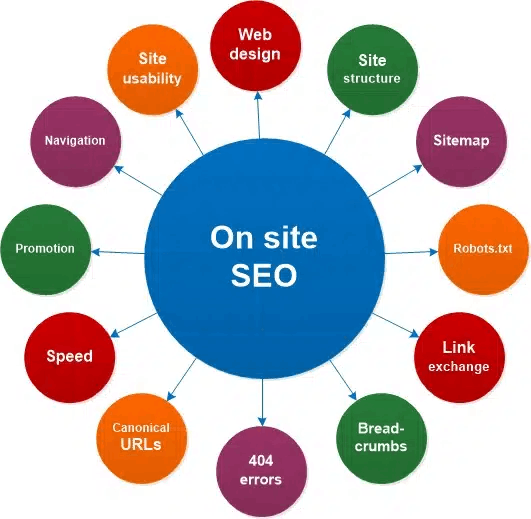Follow our SEO for my site guide step-by-step to bring floods of traffic to your website for free from the organic Google results pages.
Search Engine Optimization (SEO) is no longer a luxury; it’s a necessity for any website aiming to attract a larger audience. This article aims to provide a comprehensive guide to help you understand and implement SEO strategies for your site.
Why SEO for My Site Matters
Increased Visibility
The higher your site ranks on search engine results, the more visibility it gains, attracting a larger audience.
Higher Traffic
SEO helps in driving organic traffic to your site, which is more likely to convert compared to paid traffic.
Better User Experience
SEO isn’t just about pleasing search engines; it’s also about enhancing the user experience, making it easier for visitors to find what they’re looking for.
Understanding SEO Jargon
Keywords
These are the terms that users type into search engines. Your site needs to be optimized for relevant keywords to rank higher.
SERP
Search Engine Results Page is where your site appears when someone searches for a keyword relevant to your site.
Backlinks
These are incoming links to your site from other websites. Quality backlinks can significantly boost your SEO.
Meta Descriptions
This is a brief description that appears under your site’s title on SERP, influencing whether a user clicks on your site.
Initial SEO Audit
Before diving into SEO, it’s crucial to conduct an initial audit to identify areas for improvement. You can use SEO tools for this.
Tools
- Google Analytics
- SEMrush
What to Look For
- Broken links
- Page speed
- Mobile-friendliness
Keyword Research
Importance
Keywords are the backbone of SEO. They help search engines understand the content of your site.
Tools
- Google Keyword Planner
- Moz Keyword Explorer
Long-tail vs. Short-tail
Long-tail keywords are less competitive and more specific, while short-tail keywords are broad and highly competitive.
Choosing the Right Keywords
- Relevance to your content
- Search volume
- Competition
On-Page SEO
Title Tags
The title of your page should be compelling and include the primary keyword.
Meta Descriptions
Write a concise meta description that includes your keyword and explains what the page is about.
Content Optimization
Keyword Density
Don’t overstuff keywords; maintain a density of 1-2%.
Readability
Use short sentences, bullet points, and subheadings for better readability.
Internal Linking
Link to other relevant pages on your site to keep the user engaged.

Off-Page SEO
Backlinks
Quality over quantity. Aim for backlinks from reputable sites.
Social Signals
Share your content on social media platforms to increase visibility.
Guest Posting
Write articles for other blogs in your industry to gain backlinks and exposure.
Technical SEO
Mobile Optimization
Ensure your site is mobile-friendly, as Google gives preference to mobile-optimized sites.
Site Speed
A slow site can harm your SEO and user experience. Use tools like Google PageSpeed Insights to check your site’s speed.
XML Sitemaps
Create an XML sitemap to help search engines better understand the structure of your site.
Local SEO
Importance
For small businesses, local SEO can help you appear in local search results.
Google My Business
Create a Google My Business account and keep it updated.
Local Keywords
Use location-based keywords to attract a local audience.
Monitoring and Analytics
Use tools like Google Analytics to monitor key metrics like traffic, bounce rate, and conversion rate. Make data-driven decisions based on these metrics.
FAQs
- What is SEO and why is it important?
- SEO helps your site rank higher in search engine results, increasing visibility and traffic.
- How long does it take to see results?
- SEO is a long-term strategy; it can take months to see significant results.
- What are backlinks and why do they matter?
- Backlinks are incoming links to your site that can significantly boost your SEO when they come from reputable sites.
Conclusion
SEO is a continuous, long-term effort. This guide provides a comprehensive overview to help you get started on optimizing your site for better online presence.